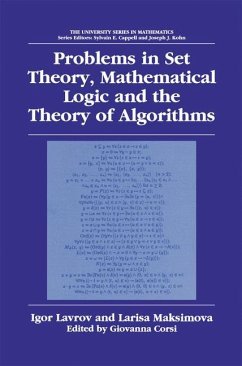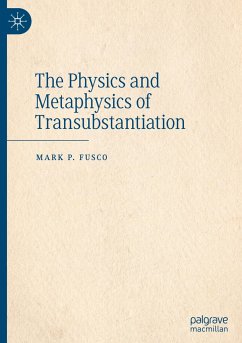
The Mathematical in Heidegger and Badiou
A Brief History of Subjectivity
Versandkostenfrei!
Versandfertig in 6-10 Tagen
32,99 €
inkl. MwSt.

PAYBACK Punkte
16 °P sammeln!
This work traces the historical development ofsubjectivity from its skeptical foundation inDescartes to Alain Badiou s subject as fidelity totruth. Heidegger criticizes modernity, defined asthe merging of the metaphysical and themathematical, for apprehending the relationshipbetween man and world in only one way, asthings. I hope show that this development does notderive from the mathematical alone, but fromthe project of objects against an objectivebackground secured in an I-pole, further advanced byKant s transcendental reflection of thething-in-itself over this project. I do this by followi...
This work traces the historical development of
subjectivity from its skeptical foundation in
Descartes to Alain Badiou s subject as fidelity to
truth. Heidegger criticizes modernity, defined as
the merging of the metaphysical and the
mathematical, for apprehending the relationship
between man and world in only one way, as
things. I hope show that this development does not
derive from the mathematical alone, but from
the project of objects against an objective
background secured in an I-pole, further advanced by
Kant s transcendental reflection of the
thing-in-itself over this project. I do this by following
Alain Badiou s assessment of Zermelo-Fraenkel s
axiomatic set theory, a particular mathematical model
that self-destructs, meaning it cannot become
absolute or dogmatic. If we can dissociate in our
ordinary language claims that utilize transcendental
reasoning from claims concerning mathematical
projection based on speculation alone, perhaps we
might find some basis to make existential claims
independent of perspective, or subjectivism.
subjectivity from its skeptical foundation in
Descartes to Alain Badiou s subject as fidelity to
truth. Heidegger criticizes modernity, defined as
the merging of the metaphysical and the
mathematical, for apprehending the relationship
between man and world in only one way, as
things. I hope show that this development does not
derive from the mathematical alone, but from
the project of objects against an objective
background secured in an I-pole, further advanced by
Kant s transcendental reflection of the
thing-in-itself over this project. I do this by following
Alain Badiou s assessment of Zermelo-Fraenkel s
axiomatic set theory, a particular mathematical model
that self-destructs, meaning it cannot become
absolute or dogmatic. If we can dissociate in our
ordinary language claims that utilize transcendental
reasoning from claims concerning mathematical
projection based on speculation alone, perhaps we
might find some basis to make existential claims
independent of perspective, or subjectivism.












